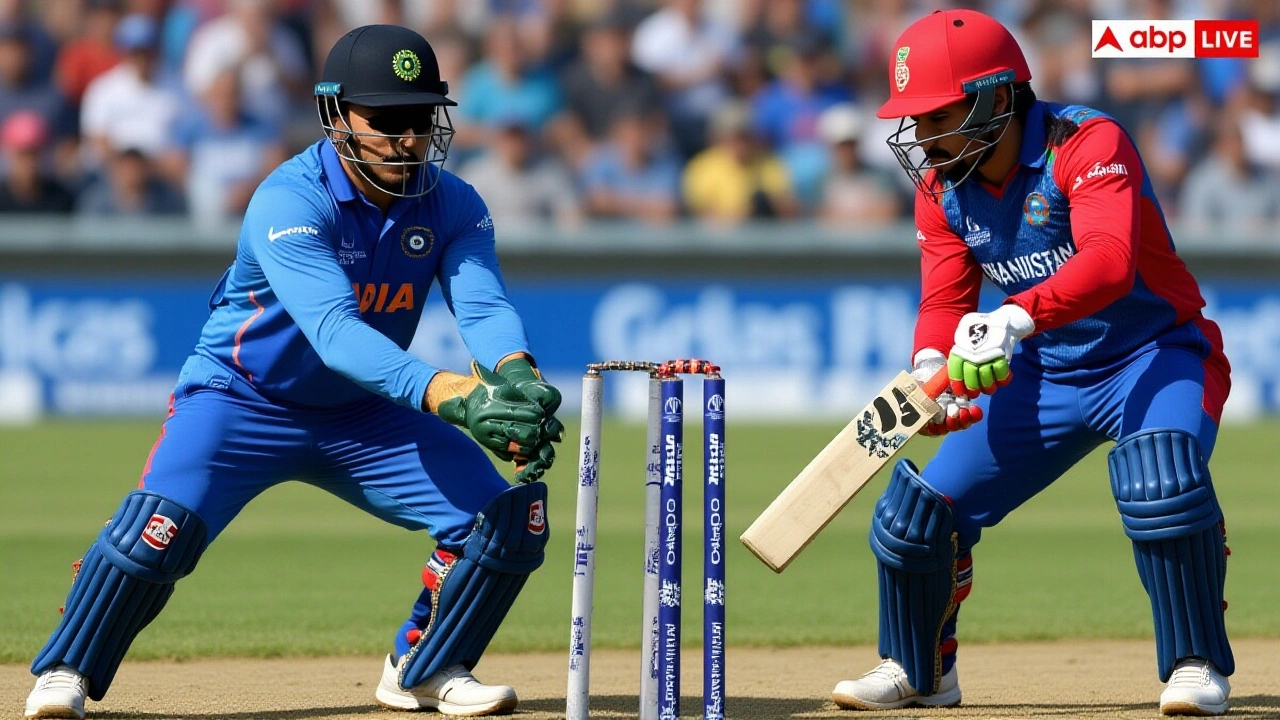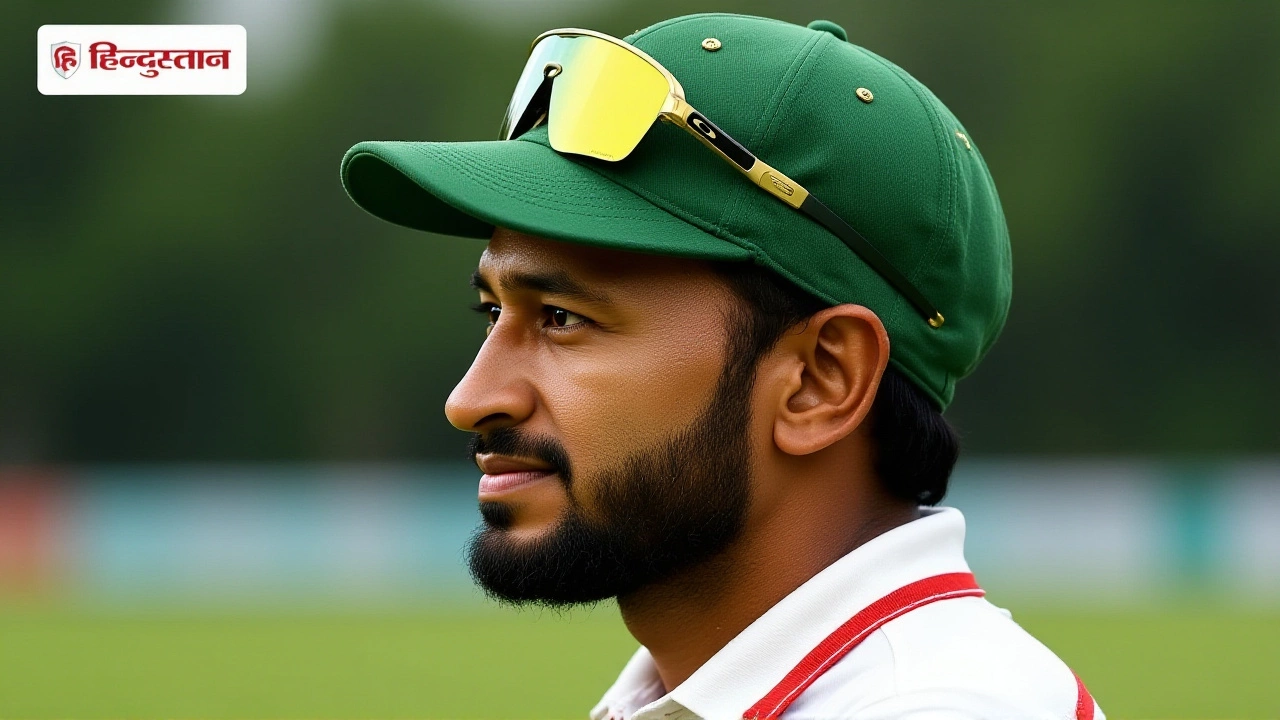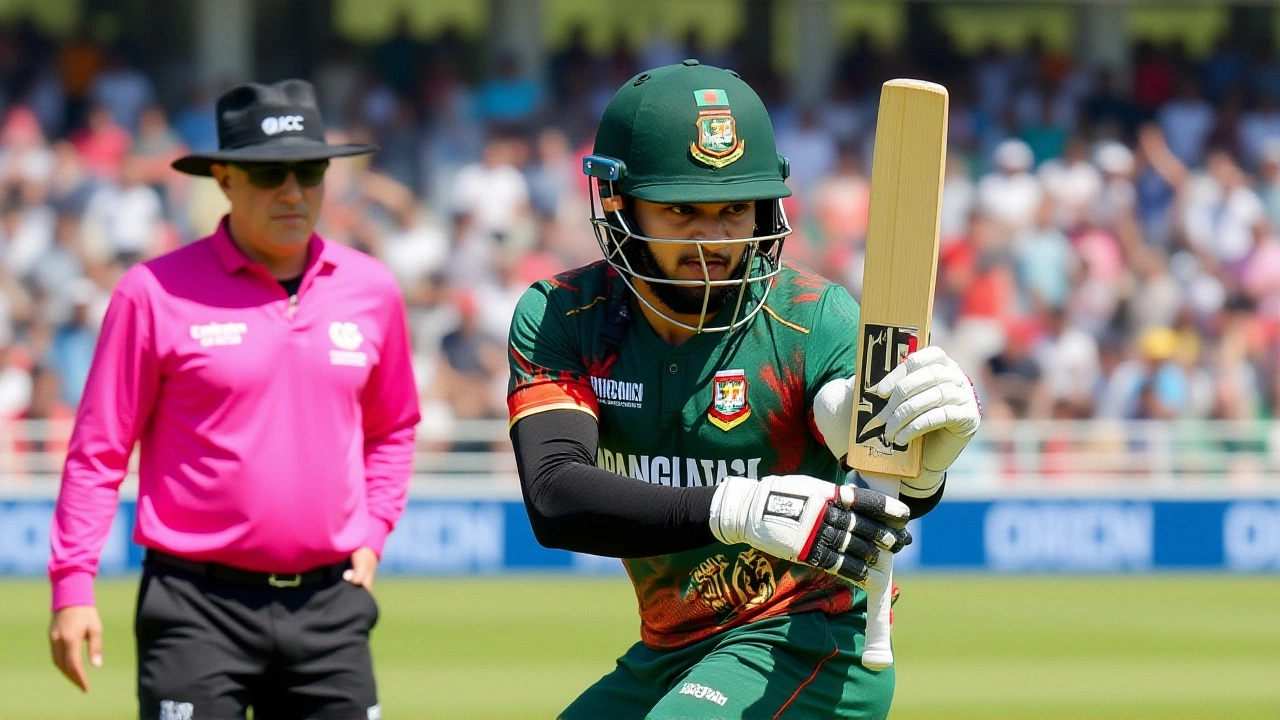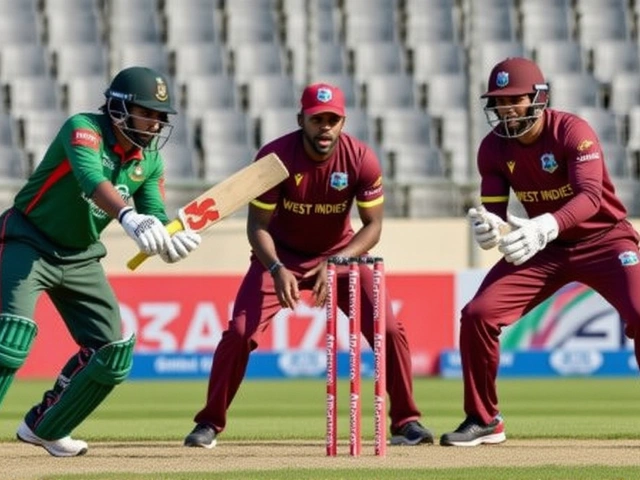When Mushfiqur Rahim stepped off the field in Rawalpindi last week, he didn’t just leave a cricket ground—he walked away from 19 years of international cricket. The 35-year-old wicketkeeper-batsman, Bangladesh Cricket Board’s most capped player and second-highest ODI run-scorer, announced his retirement from One Day International cricket on Wednesday, March 2025, just hours after Bangladesh was eliminated from the Champions Trophy 2025Rawalpindi without winning a single match. His decision, shared in a heartfelt Instagram post, wasn’t born from anger or frustration alone—it came after years of carrying the weight of a nation’s hopes, and now, the quiet realization that his time had passed.
The Weight of 273 Matches
Mushfiqur Rahim didn’t just play cricket for Bangladesh—he embodied it. Since his debut in 2006, he played 273 ODIs, more than any other player in the country’s history. He scored over 8,000 runs, including 16 centuries, and was the rock in the middle order when the team’s batting collapsed. Fans called him ‘Mr. Dependable’—not because he was flashy, but because you could always count on him to hold the innings together, even when the scoreboard screamed panic. In 2015, he captained Bangladesh to their first-ever World Cup quarterfinal. In 2023, he was the only player to score a century in the World Cup against India. And yet, despite his individual brilliance, Bangladesh never won a major ICC trophy.
Champions Trophy 2025: The Final Straw
The Champions Trophy 2025Rawalpindi was supposed to be Rahim’s last chance to lift silverware. Instead, it became his farewell. Bangladesh lost to India by 109 runs in a one-sided opener, then collapsed against New Zealand by 14 runs in a match where Rahim scored just 12. The final group game, against Pakistan, was washed out in Rawalpindi’s National Stadium—rain soaking the pitch, and perhaps, his last hope. No win. No momentum. No future. "The last few weeks have been incredibly tough," Rahim wrote. "These challenges forced me to see the truth: my path is ending here."

A Nation’s Gratitude
The Bangladesh Cricket Board responded with a formal statement calling Rahim’s career "unique and inspirational." Even his critics, who sometimes questioned his strike rate or defensive style, had to concede: no one gave more. Former captain and current head coach Chandraprakash Pandit said, "His leadership in the dressing room, his calm under pressure, his ability to mentor young players—that’s the legacy he leaves behind. Not just runs, but resilience."
Behind the scenes, Rahim had been mentoring Liton Das and Riyad Mahmud, two young players now expected to fill the void. Liton, 27, has the flair but lacks consistency. Riyad, 24, is a dynamic hitter but still learning the nuances of keeping under pressure. Neither has Rahim’s experience. "We’re not just losing a player," said one senior BCB official. "We’re losing the glue."
What Comes Next?
Rahim won’t disappear from cricket. He’s expected to join Bangladesh’s coaching staff, possibly as a batting consultant or mentor for the emerging squad. He’s also likely to play in the Bangladesh Premier League, where his presence will still command respect. But the international arena? That’s closed. His final ODI innings—12 runs off 24 balls against New Zealand—wasn’t the grand finale anyone imagined. But then again, Rahim never played for applause. He played because he loved the jersey.

The Ripple Effect
His retirement marks the end of an era. Alongside Shakib Al Hasan, who’s still active but aging, Rahim was the last link to Bangladesh’s early struggles as a Test nation. His exit leaves a leadership vacuum. Who will hold the team together during collapses? Who will calm the nerves of debutants? Who will speak truth to selectors when the team’s direction is wrong? These aren’t just tactical questions—they’re cultural ones.
For young fans in Dhaka or Sylhet who grew up watching Rahim bat in the 2007 World Cup, this feels personal. He wasn’t just a player. He was the guy who stood tall when the world doubted Bangladesh. He didn’t have the power of Tamim Iqbal or the spin magic of Shakib, but he had something rarer: unwavering loyalty. And now, that loyalty has found its final bow.
Frequently Asked Questions
How many ODIs did Mushfiqur Rahim play for Bangladesh?
Mushfiqur Rahim played 273 One Day Internationals for Bangladesh, the highest by any player in the country’s history. He scored 8,079 runs at an average of 36.8, including 16 centuries and 54 half-centuries. His consistency over nearly two decades made him the backbone of Bangladesh’s middle order.
Why did he retire after the Champions Trophy 2025?
Though Rahim never cited one single reason, the team’s winless campaign—losing to India and New Zealand, with the Pakistan match washed out—seemed to be the final trigger. Combined with his age, the physical toll of 19 years of international cricket, and the lack of a clear succession plan, he realized his role was no longer sustainable. He said the "challenges of recent weeks" forced him to accept his path had ended.
Who are the potential successors to Mushfiqur Rahim as wicketkeeper-batsman?
Liton Das and Riyad Mahmud are the two main contenders. Liton, 27, has the batting pedigree but inconsistent keeping. Riyad, 24, is a powerful hitter and improving behind the stumps, but lacks international experience. Neither has Rahim’s calm authority under pressure, making this one of Bangladesh’s toughest transition challenges in recent memory.
What was Mushfiqur Rahim’s role in Bangladesh’s cricketing evolution?
Rahim was instrumental in transforming Bangladesh from underdogs into consistent ODI contenders. He played through the 2007 World Cup shock run, the 2015 quarterfinal breakthrough, and the 2023 World Cup wins over England and South Africa. His leadership, especially as captain during transitional phases, helped stabilize the team during periods of chaos. He didn’t just play the game—he helped define its identity for a generation.
Will Mushfiqur Rahim return to international cricket in any format?
He has ruled out all forms of international cricket, including Tests and T20Is. However, he is expected to remain involved through coaching roles with the Bangladesh Cricket Board and possibly play in the Bangladesh Premier League. His focus now is on mentoring young talent rather than wearing the national cap again.
How did fans and fellow players react to his retirement?
Social media flooded with tributes, with hashtags like #ThankYouMushfiqur trending across Bangladesh. Former rivals like Virat Kohli and Kane Williamson sent private messages of respect. Even Pakistan’s players, his on-field adversaries, posted videos praising his sportsmanship. One viral clip showed a young boy in Sylhet crying while holding Rahim’s jersey—proof that his impact went far beyond statistics.





